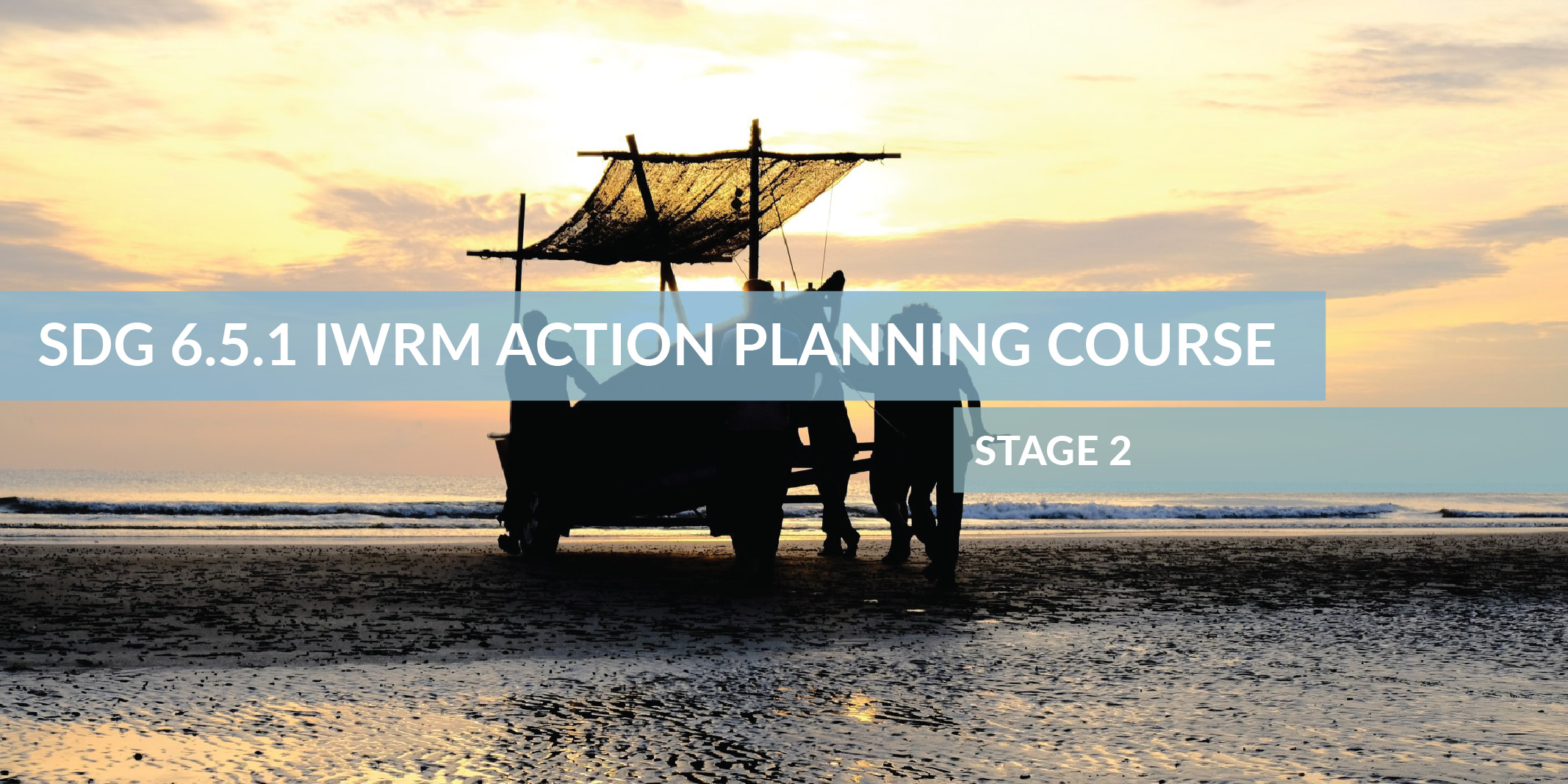Designing an IWRM Action Plan can be an overwhelming process. There is the need to include a wide range ofstakeholders, and this can lead to plans becoming complex, theoretical, and difficult to implement. At the same time, Action Plans should be ambitious and contribute meaningfully and effectively to better management of water resources. They should also be grounded in reality to ensure effective implementation. Overcoming these potential obstacles and developing a successful IWRM Action Planiskeyto making progress towards SDG 6.5, and by doing so, achieving many other water-related targets.
The new SDG 6.5.1 IWRM Action Planning course provides a step-by-step roadmap for the successful roll out of an Action Plan.
Based on the SDG 6 IWRM Support Programme’sIWRM Acceleration Package –developed by Global Water Partnership in consultation with Cap-Net UNDP and UNEP-DHI Centre on Water and Environment, and under the guidance of the United Nations Environment Programme, to assist governments in designing and implementing country-led responses to SDG indicator 6.5.1 –the courseexplores five core modules:
- Module 1: Overview of IWRM and its links to the SDGs, andthe purpose and benefits of an IWRM Action Plan.
- Module 2: How to design and implement an inclusive, results-oriented stakeholder engagement process for action planning.
- Module 3:Why linking IWRM action planning to a country’s overall water- and development-related challenges and opportunities and aligning the planning with other national and international priorities is important, as well as an introduction to useful tools and approaches.
- Module 4:Experience-based inputs on what might happen during stakeholder consultation, and how to set priorities for the action plan and reach agreements with stakeholders.
- Module 5: What steps should be taken to maximise the chances that the action plan will be implemented and that stakeholders will remainengaged.
By the end of the course, participants will have an in-depth understanding of the content and scope of an IWRM Action Plan. Theywill know how to collect and develop baseline materials, will have obtained a set of skills and methodologies for preparing and implementing a participatory consultation process, and will be able to implement the necessary steps to enhance the sustainability and uptake of the Action Plan.
The course is based on the real-life experiences gained over the last few years as the Support Programme worked with countries to develop IWRM Action Plans. "Our consultations in the crafting of the IWRM Action Plan involved several stakeholders, in- and outside government,” said Andrew Mware Kinyua, Deputy Director, Water Quality Monitoring, Ministry of Water, Sanitation and Irrigation in Kenya. “The support really helped us, especially in the holding of virtual meetings because of Covid-19 restrictions. In our meetings, we used consensus to reach an agreement. So the actions in the Action Plan were agreed upon because the same stakeholders were involved in crafting of the 2020 SDG 6.5.1 report.”
Who is the course for?
The course is tailored to actors involved in formulating IWRM action plans, including civil servants in water-related ministries and agencies, representatives of global, regional, national, and sub-national organisations, including civil society organisations, universities, intergovernmental organisations, and professional associations, as well as consultants involved in supporting IWRM implementation. The course is open to anyone,whether or not they are involved in the activities of the SDG 6 IWRM Support Programme. In that sense, it is an “open source” approach that all interested stakeholders are invited to follow.
While it is customisable and self-paced, it is estimatedthe course could take between 8 and 15 hours to complete. This includeswatching the videos in each module, reading through the mandatory and selected recommended material, being involved in group discussion on the platform, and completing the assessments.
To attain certification, participants must complete all modules and achieve 60 percent on average across the end-of-module tests.
Find out more about the course and register here: https://link.gwp.org/IWRMAction [available from 22 March]
Discover our short video on the course

